Document Your Business Processes to Save Money
Last Updated on March 28, 2021 by Owen McGab Enaohwo
Struggling to get clients in the door? Having problems documenting processes? Don’t know how to write procedures?
Don’t worry, these are issues businesses face all the time.
Join John Corcoran and guest Alyson Caffrey on today’s episode of the Process Breakdown Podcast, where they talk about the best way to scale a business, document, and streamline processes.
Ms. Caffrey is the CEO of Operations Agency, a company that serves entrepreneurs in the digital marketing space, helps digital marketing agencies streamline their operations, and other small businesses fine-tune their operations.
Listen to the interview
Subscribe for more business success stories
Key Resource List
- SweetProcess.com, 14-day free trial, no credit card required
- OperationsAgency.com
Show Notes
0:06 – Introduction
0:26 – Mr. Corcoran shares the best solution that makes documenting standard operating procedures drop-dead easy, highlighting a 14-day free trial. No credit card required.
1:26 – Mr. Corcoran introduces the guest for today’s episode, Alyson Caffrey, CEO of Operations Agency.
1:39 – Ms. Caffrey talks about her business, what led to its formation, and what they help service-based businesses accomplish.
3:52 – The guest explains how companies can carve out time to create and document processes properly.
6:23 – The guest explains how documenting processes helps save way more money.
8:49 – Ms. Caffrey explains why continuous documentation of processes is valuable, giving the best ways businesses that constantly change should go about it.
10:35 – Ms. Caffrey gives insight on how to convince people or businesses to stop doing certain things they do, with regards to the elimination piece. She also touches on how business owners can go about delegating.
12:38 – The guest talks more about delegation and how to systematize processes.
14:59 – Ms. Caffrey explains how businesses can decide what process to automate, which is the last step after eliminating and delegating.
16:38 – The guest talks on how and when people should get paid, and how it leads to cost savings.
18:31 – “The best tool to use is the one you actually use,” is Ms. Caffrey’s answer to people who ask her “What tools should I be using?” She explains how it’s better to have a playbook of processes in a spreadsheet that’s useful, rather than a user experience–driven tool that isn’t functioning.
20:01 – The guest advises business owners’ concerns about automating, delegating and improving their processes.
21:04 – Ms. Caffrey names places where her or her business can be reached.
21:24 – Outro.
Guest Profile
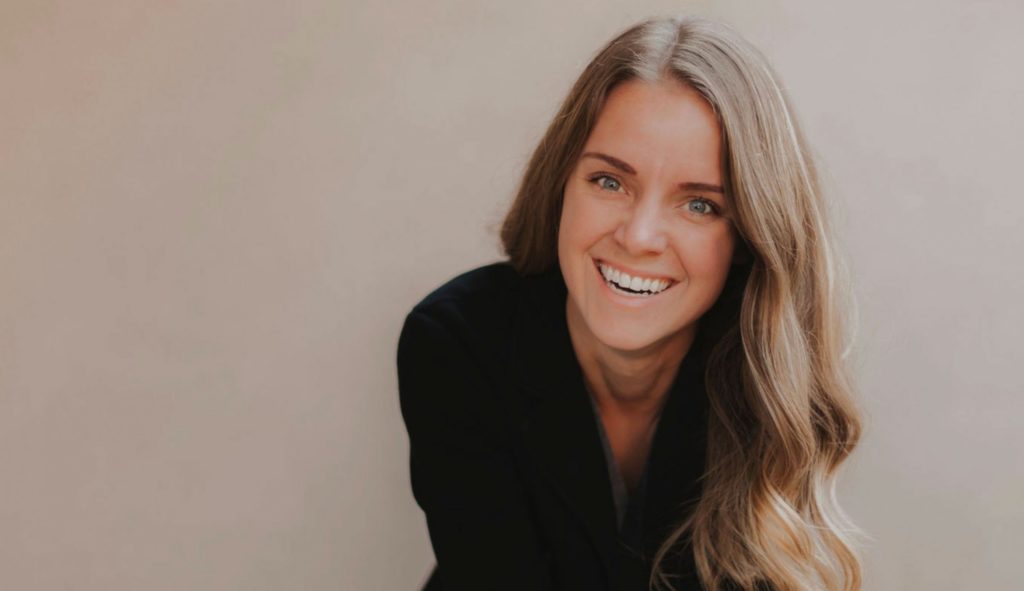
Alyson Caffrey is an entrepreneur, operating officer, and founder of the company Operations Agency.
She started the company back in 2017 out of necessity, to help service-based businesses document the procedures they need to get their operations sorted in order to grow their team, scale their business, and remain profitable.
She studied English Language and Literature/Letters at Rowan University.
Transcript of the interview
Speaker 1: Welcome to the Process Breakdown Podcast, where we talk about streamlining and scaling operations of your company, getting rid of bottlenecks and giving your employees all the information they need to be successful at their jobs. Now, let’s get started with the show.
John Corcoran: All right, John Corcoran here, co-host of the Process Breakdown Podcast, where we talk about streamlining and scaling operations of your company, getting rid of bottlenecks and giving your staff everything they need to be successful at their job. Past guests include David Allen of Getting Things Done and Michael Gerber of The E-Myth and many more. This episode is brought to you by SweetProcess.
John Corcoran: Have you ever had team members ask you the same questions over and over again, and it’s like the 10th time you spent explaining it? Well, there’s a better way and a solution. SweetProcess is a software that makes it drop dead easy to train and onboard new staff and save time with existing staff. Not only do universities, banks, hospitals, and software companies use them, but first responder government agencies use them in life or death situations to run their operations.
John Corcoran: Use SweetProcess to document all the repetitive tasks that eat up your precious time, that you can focus on growing your team and empowering them to do their best work. Sign up for a free 14-day trial, no credit card required. Go to sweetprocess.com, sweet like candy. Sweetprocess.com.
John Corcoran: All right, so our guest today is Alyson Caffrey. She’s the CEO of Operations Agency out of Nashville, Tennessee. Alyson, I told people a little bit about you, but why don’t you jump in and just share a little bit about who you are and what you do.
Alyson Caffrey: Thanks, John. I’m pumped to be here. So like you said, my name’s Alyson Caffrey. I’m the CEO, founder of Operations Agency. We are basically formed out of need as a lot of small businesses are. We saw a huge need in the marketplace. At least I did after I kind of left my 9:00 to 5:00 for. Basically folks, they have an inflection point when they start their business, and basically what we found is that the inflection point exists when they’re in a growth pattern and they need to start documenting some procedures and they need to get their ops kind of sorted in order to grow their team, scale their business, remain profitable, all of the things.
Alyson Caffrey: So, we started back in 2017 and we’ve been helping service-based businesses now for a few years really get that piece of their business figured out, so that they can remain in business, remain in a healthy relationship with their business, with their team, all of that stuff. My formal background is in ops. I helped found a company. One of the founding members of a marketing PR agency is kind of how we started out. I noticed that one of the very first things that we really needed to do was get our IP down, get our secret sauce, document it and get everything sorted out.
Alyson Caffrey: So that came with its own set of challenges, growing the business and getting all of that stuff sorted and managing the team. I figured why not make this more accessible, why not have this be something that folks talk a little bit more about, right? Because I think sometimes folks are scared to share. Scared to share that struggle and pull the messy closet door open and say, "Wow, this is what I’m dealing with behind the scenes of some of these larger brands." So, we were founded again out of necessity and we love what we do and helping folks sort out what’s going on in the backend.
John Corcoran: I want to address that first issue you mentioned, how to document your IP, your process, because so many people, so many business owners struggle with that. They’re running around just trying to get clients in the door and fulfill on the client work. How do you advise them to carve out the time in order to create and document those processes?
Alyson Caffrey: Yeah, so I think it’s really challenging, because if we back up 30,000 feet on this, right, a business owner starts a business because they have a very specific type of skillset or have a passion to serve a specific type of person in a specific type of way, right? Picture your agency owner who really loves creating high-touch, high-design websites, right? That’s what they want to do all day long.
Alyson Caffrey: They fall into ownership of a business. They’re suddenly managing a team, managing a balance sheet, managing all these ops and ins and outs and projects and clients and everything. Our philosophy at Operations Agency is that that person, that business owner who loves to create websites, shouldn’t be documenting process, right? They shouldn’t be writing procedures, because that actually is going to draw away from, A, what they’re passionate about, and B, what the most effective and highest billable hour is for their agency, right?
Alyson Caffrey: So when we get into this situation of, okay, what should I be documenting? The answer is very simple. It’s everything, right? Everything that’s going to be moving forward in the business as it grows. But in this case, you can leverage some really cool external tools, like for example, screencasting, that sort of thing. That’s kind of the first level of documentation that I would recommend for somebody like the agency owner archetype that I just mentioned, is to start getting that repertoire of here’s how to do what I do, and then get that over to the team. Even if it isn’t formally documented, it still can be helpful about bridging the gap between A to B or A to C and kind of get them further along in the process.
Alyson Caffrey: Now when it comes to IP, I know that that’s a really challenging thing to land on in the beginning, and so I would say anything that you have done again in the past, let’s just say last quarter as an agency. If you’re in the business of saying yes right now because you’re still kind of in that freelancer mode, my opinion would be anything that you have done in the past quarter that you plan to move forward with into the next quarter in terms of services, try to get that documented. Try to get that screencast up and make sure that at the very bare minimum, while you’re actually doing the work for your clients, fold that time and record your screen.
John Corcoran: So, make the connection for me. I think you’ve already touched on it, but let’s go deeper on the issue of how it saves me money. So if I’m an agency owner and I’m thinking, "Ah, geez, I’ve got to record these screencasts and then I got to pay someone to create it into processes." I’m thinking that’s going to cost me more. Where’s the cost savings come from documenting those processes?
Alyson Caffrey: Yeah, so that’s a good question. It comes kind of immediately and then also on the backend, so I’ll talk about both. The first is that obviously if you are doing the $10,000 an hour tasks, right, those delegation things, leadership things, really kind of operating in your sweet spot, and you would probably need to as a business owner figure out what that sweet spot is. Then in this case, sending off documentation, sending off this, for example, how to manage a project, how to file certain client, let’s just say it’s logos and fonts and whatever else for your web design project, right? Filing all that stuff. Those billable hours are likely … you could probably find somebody to come into your business and do that for 10, 15 bucks an hour, right? Overseas, VA, really, really high profit types of things.
Alyson Caffrey: In my mind, if we as business owners are billing our time at let’s just say $250 an hour to start and we are spending that time, our time doing that, that means it’s costing the business $250 an hour versus $10 to $15 an hour out of our pocket. Now on the flip side when we go to train an actual team, it probably costs, I don’t have the number written down, but it costs somewhere in five figures to train an inbound person to come in and sit in a position of repetition like this with process.
Alyson Caffrey: My thought process is that if we can reduce that number as much as possible, then in my opinion, then processes then pay for themselves to basically be written in this case. It saves us a lot of money on the backend, especially when it comes to scaling. Especially when you’re in a position where you have a leadership team and you can basically say, "Hey, look, we need to follow this process to a T."
Alyson Caffrey: It definitely helps with quality control in the long run as well, which obviously if quality isn’t great, it definitely ends up costing us a lot of money in the end. So I would say that with process, it definitely bleeds into several different departments in your agency or in your service business, however, immediately it saves you your billable time and it also saves inbound training for new people coming into your organization.
John Corcoran: Mm-hmm (affirmative). What about the concern that I imagine you get from people that, "I’m moving so quickly, things are changing, I’m bringing in new tools, I’m shifting." What about the concern that, why document something when it might change a week from now or a month from now?
Alyson Caffrey: Yeah, and again, I think going back to what have I done in the last quarter, what do I want to move forward with the next quarter, right? That’s really the litmus test of what you should be documenting. Now, if you’re the type of business that changes all the time and is kind of always flipping from project management tool to project management tool and can’t quite land, we might need to address that first in terms of staffing. So, who makes those decisions? Is it the person who might be kind of the high in the sky high, quick start CEO type person, and do we need to get somebody else in here who’s a little bit more of a follow through to be managing some of the decisions around what tools to use? That sort of thing.
Alyson Caffrey: So we got to ask ourselves those hard questions, because if we switch project management tools every other month, then in my mind, it’s almost impossible for the team members that we have to come in and hit those marks, it’s impossible for them to hit their KPIs. So, we got to have that foundation. Again if you’re a creative, if you’re a high quick start, if you’re that type of person who’s in more of the content creation, the selling, the conversational pieces in terms of networking, that is so valuable to a business. But we got to have that other side of the scale that really is that high follow through, the ops type minded person, that project management person to be making those key decisions about tools and about process and all that.
John Corcoran: There’s this saying, eliminate before you delegate, before you automate or eliminate, delegate, automate in that order, I believe. I don’t know who said it, but I want to ask about the first piece eliminating, because that’s got to be a hard conversation that you have with some of your clients who maybe they’ve been in business for a while, maybe they’ve gotten to a certain point in terms of revenue, size of the company, whatever, but there are certain habits that die hard. So, how do you convince people that they need to stop doing some of the things that they’re doing, or their team members for that matter?
Alyson Caffrey: Yeah, I think by the time people have healthy conversations with me, they’re kind of bought into the fact that something’s not working, and so I need to explore options and figure out what I need to change. Even with some of the more headstrong teams that I’ve worked with, there is a lot of buy-in around the fact that things will become detangled in the future, right?
Alyson Caffrey: So, if you sit down at your desk every day or you’re going and spending time with your family and all of a sudden something hits you and you’re like, "Oh crap, I forgot to send that email, or, oh crap, I didn’t follow up on this task." That is so derailing to having a fulfilled, well-rounded 360 life and all of those things. So, I think that when we sit down with business owners and we say, "Hey, listen, the reason why your bottlenecked is because you are the person who’s making decisions about tools in your business and not going out and shaking 10 more hands every single week."
Alyson Caffrey: I know that COVID might prevent that from happening regardless, but really staying in that zone of, "Okay, look, I know that I’m the best in the world at blank. I’m not the best in the world at systems, I’m not the best in the world at process, so I need to then go ahead and shift my focus."
Alyson Caffrey: A really helpful activity that I always have my owners go through is write down your to-do list for the day, just write it out on a piece of paper. Anything you feel like you either should not be doing, meaning it’s not in that upper echelon, like $10,000 tasks, for lack of a better term, those real money makers, or if you feel like it can be easily just pulled off your plate because you don’t want to do it, then just highlight those items and make those the first to delegate, right? Really take a look and say, "Look, I don’t want to be doing this all day or someone for sure could do this for cheaper than me," and then get those tasks off your plate as soon as possible.
John Corcoran: Then now let’s talk about the second piece, the delegation piece, which you just touched on. So many business owners struggle with that, they really have difficulty delegating pieces. How does the operation, systematizing processes, how does that help with that scenario?
Alyson Caffrey: Yeah, so I would say it helps probably more than anything that exists currently. So, I’ll unpack that a little bit. I think the first thing that I always tell my clients, especially the solopreneurs, the folks who come in and they’re like, "I’ve never hired a team, I got to touch everything. I’m a design agency and I’m super picky," right? I mean, that’s the big issue, is you want to be able to touch everything in your business. You’ve to this point provided a really, really high-touch high-ticket experience, and now inviting somebody into this, it’s a little bit scary, right? Because it’s your name, it’s your brand. I totally empathize with that.
Alyson Caffrey: I think that the real thing that all of us need to get our head around is that there’s only one us. I know a lot of process people and a lot of ops people are like, "Duplicate yourself, duplicate yourself." Well, that literally is not possible, and the fact of the matter is, is that nobody is going to approach a project with as much care and as much investment as we do, because we are the owners, that is 100% true.
Alyson Caffrey: So, we need to ask ourselves when we start to delegate is what are the non-negotiables in this task, in this project, in this whatever, right? So we can basically line out, okay, how do I get this to 80%? I know I could get it to 120%, but what are the non-negotiables where we know that based on the client agreement, based on the project, based on the goals, we’re going to get to where we need to go with excellence and really define those parameters, right?
Alyson Caffrey: A lot of people talk about core values, a lot of people talk about things like that, right? We can start to embed some of those things into kind of that foundational piece of our ops and say, "Listen, we operate like this, we make decisions like this. We approach projects like this, we approach meetings like this." I think that as much as we can line that out for a team, the better shot they have at hitting our high expectations, right?
Alyson Caffrey: They’re never going to be us, but in this case when we start to bring some people in, they can really understand more of a 360 view on what we expect from them when we lay it out really nice in a process and with our core values and with our kind of standard operating procedures.
John Corcoran: Yeah. Okay, cool. All right, so then just wrapping up this discussion on the automation piece. How do you figure out what pieces you should automate once you’ve gone through those other two phases?
Alyson Caffrey: Yeah. Yeah, that’s a great question. I think it would depend on, A, the talent stack that you have on your team, right? If you’ve got somebody who’s doing really well and operating really efficiently and they love doing what they’re doing, this repetitive task or what not, then let’s just go ahead and keep them there. If for some reason that becomes a situation where somebody isn’t let’s just say putting data into a specific area fast enough for us, then I think automation is perfect, especially for your data.
Alyson Caffrey: So anywhere where data needs to be communicated from one platform to another, be that your CRM, be that any way that you manage let’s just say a customer list, the way that you gather your leads, the way that you pull in your sales if you’re doing proposals into an actual invoice, that all should probably be automated. So all of that stuff, anything that’s standard enough to even create an automation, right?
Alyson Caffrey: So if you haven’t figured out the second piece, how to delegate, then there’s no possible shot you’ll probably be able to automate this thing if it’s kind of all over the place. So anything that’s been repeated for a significant period of time, anything that has to do with sending data from one platform to the other, I would always recommend automating, and then anything that needs to happen immediately, right? So for example, it would be getting a new client, getting their proposal out, they approve the proposal, get the invoice and then get all of their welcome emails sent, for example, that likely should all be automated.
John Corcoran: Okay. Then I want to ask about another piece which is related to cost savings, but one thing that you’ve advised clients with is how people get paid, what frequency, or when. Do you want to talk a little bit about that piece and how that can lead to cost savings?
Alyson Caffrey: Yeah, I think it depends on what type of role you’re looking at. So for example, all of our overseas contractors are paid by the hour, but we measure them by the output, so from a key performance parameter. So for example, if my team is writing process all day, every day, they get paid X amount of dollars per hour, but it takes them X amount of dollars to write a process for me. So, that I know if I’m looking at a project with 500 process scope, I know what to charge them from a cost perspective.
Alyson Caffrey: So that’s how I manage those repeatable tasks, if you will, right? We use a ticketing system for all of our processes that we write and each of them gets measured by output. So that’s step number one, I would say that’s the base level. Those are your repeatable tasks, the really easy layups, the ones that you can basically outsource.
Alyson Caffrey: The second level I would say is probably like your management team. Those folks, I have my entire management team on retainer, meaning that they’re either contractors that are paid a set price or they’re employees that are paid a salary. So, my thought process there is that there are variables, there are unknowns, but what we really need to make sure that happens is that that person owns the outcome of the entire project.
Alyson Caffrey: If that means that they work five hours this week on a really simple project, then I’m happy that they’re happy that they only worked five hours and we have a really smooth process. But if they need to work 50 hours the next week because we have a really complicated project and we need to make sure that it seen to the finish line, we need to make sure that that stuff’s built in. It for me is a lot easier to price my management team into my contracts, because I know what the cost is going to be.
John Corcoran: Got it, got it.
Alyson Caffrey: Yeah.
John Corcoran: I have to ask you about this, although I know we’re going to laugh at it. Tools, people love to talk about tools. They love to talk about different soft, shiny objects, stuff like that, but what do you say when people come to you and they ask about what tools should I be using?
Alyson Caffrey: Yeah, usually what I say is, and they hate this answer, is the best tool to use is the one that you’ll actually use, right? So I have so many clients that come to me and they’re like, "Well, we’re on Asana." Then I go into their Asana and they have two half built projects, and I’m just like, "So, you don’t use Asana if we’re being totally honest with ourselves here."
Alyson Caffrey: So my advice always is around the content, not the actual tool. So my personal opinion is if you have a playbook of processes to follow or a project template in a spreadsheet, it’s better than using a beautiful, fancy user experience-driven tool that can remind you and all those silly things, right? So my thought is commit to something first, and if you don’t know what that platform’s going to be, just toss it into Google Sheets.
Alyson Caffrey: Then I personally tell my clients to let project management systems audition for them for their business. Meaning that if I’m managing my projects in Sheets for a little while, and my team gets down with a Kanban style ticketing system based project management system, then I’m going to use Trello or I’m going to use Asana in my list view. So to me, I would say first figure out how your team works best and figure out how the projects even need to be structured, and then really start to think critically about, okay, what can support us at scale?
John Corcoran: Cool. Alyson, any final thoughts that we haven’t touched on that you would advise business owners on who are concerned about automating and delegating and systematizing their processes and improving their processes?
Alyson Caffrey: Yeah, I would say start as soon as possible and start simply, right? You can start simple and get a little complicated later if you need to. So, starting with just simply opening up your screencasting tool. I personally use Loom, it connects right into my Chrome extension. What I do is I basically fold time and I don’t set aside times to record processes, I just simply turn on my screen while I’m doing something that I want to delegate.
Alyson Caffrey: It can literally be that simple. You don’t have to have a fancy procedure, you don’t have to have any of that stuff, all your team really needs is to see you doing it and to see what that definition of done looks like. Then that is kind of the first step. So I would start as early as possible, even if you’re in the very new stages of your business, if you’re like, "Hey, I know I want to do this forever, but I don’t want to send invoices anymore," then just record your screen. It’s super, super simple.
John Corcoran: Yeah, that’s great advice. I wish I had heard that early on in my entrepreneurial journey for sure. Alyson, this has been great. Where can people go to learn more about you and the work that you do?
Alyson Caffrey: Yeah, I’m super accessible. My website’s operationsagency.com, I got a ton of resources there. I’m also on Facebook. So if you have any specific questions, you can just hit us up at Operations Agency. I’m happy to answer any questions about process, about systematizing. But yeah, that’s pretty much me.
John Corcoran: All right, thanks so much, Alyson.
Alyson Caffrey: Yeah, thanks, John.
Speaker 1: Thanks for listening to the Process Breakdown Podcast. Before you go, quick question. Do you want a tool that makes it easy to document processes, procedures, and or policies for your company so that your employees have all the information they need to be successful at their job? If yes, sign up for a free 14-day trial of SweetProcess. No credit card is required to sign up, go to sweetprocess.com. Sweet like candy and process like process.com. Go now to sweetprocess.com and sign up for your risk-free 14-day trial.
Owen: Hi, this is Owen, the CEO and co-founder here at SweetProcess. If you’ve enjoyed listening to this podcast interview, actually, you know what I want you to do? Go ahead and leave us a five-star review on iTunes, that way we get more people aware of the good stuff that you get here on this podcast. Again, go on to iTunes and leave us a five-star review. Looking forward to reading your review. Have a good day.



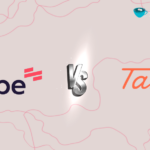
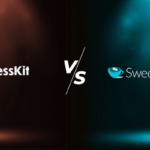



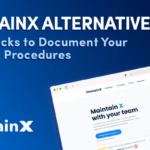

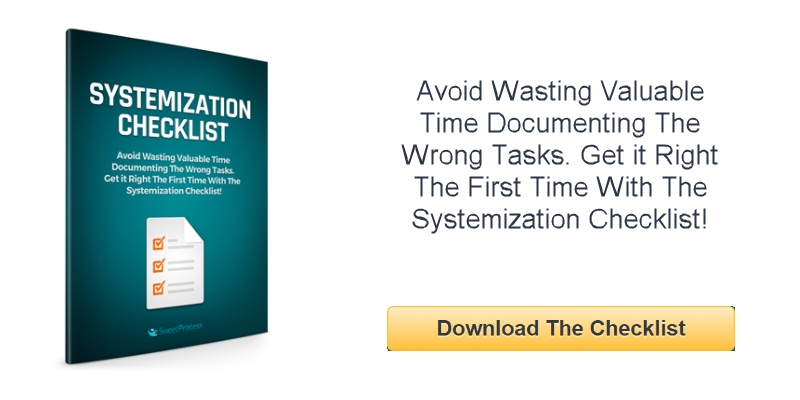
Leave a Reply